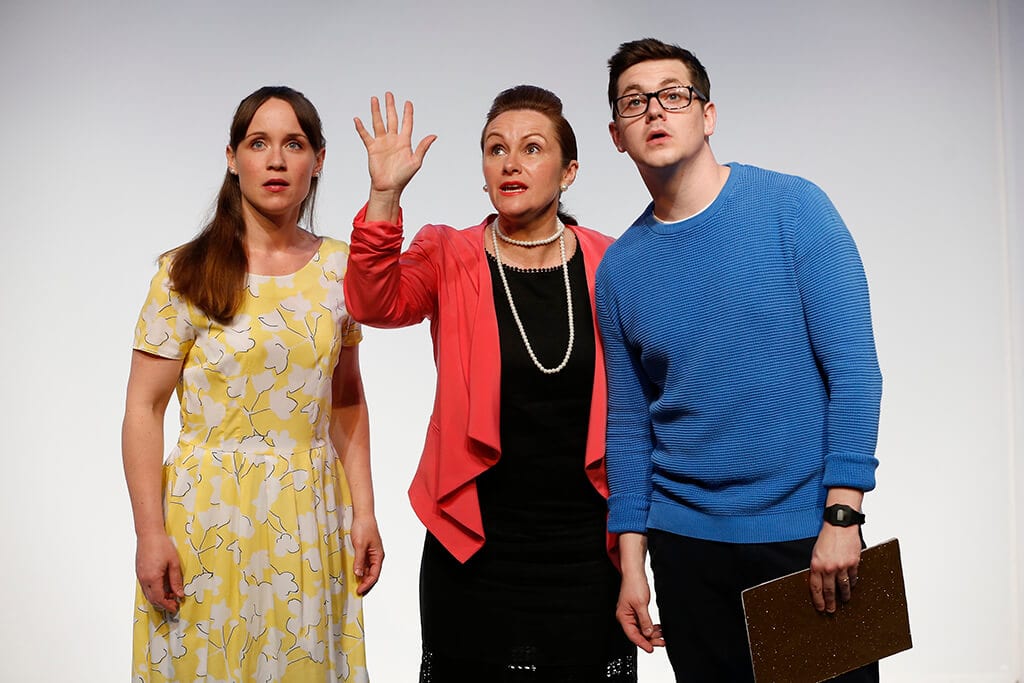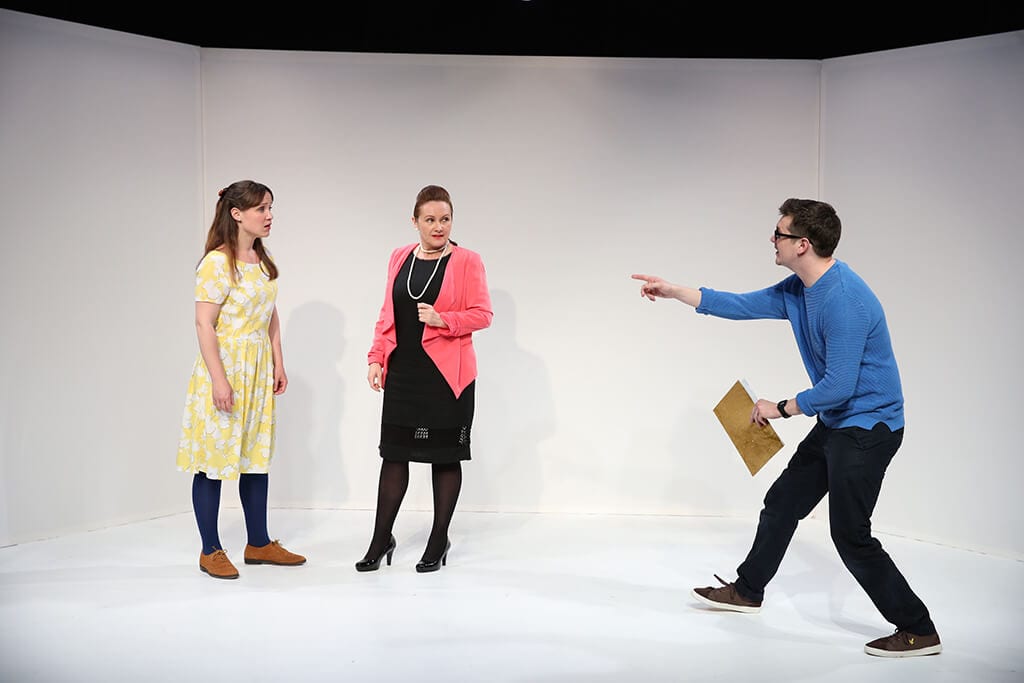As we enter the theater, we get an audial hint of what’s to come with Madonna’s Material Girl. Playwright Ridley amusingly presses the question “What price that dream house?”
The stark white stage with three fluorescent stripe lights is the set. No furniture, no props. A young, attractive and very engaging couple, Jill (Scarlett Alice Johnson) and Ollie (Sean Michael Verey) bop on stage and introduce themselves, along with their infant son, Benjy, who is in his wicker portable bed. David Mercatali’s direction is brisk and brutally bouncy so that it’s impossible for us to resist such a jolly and entertaining couple. They implore us, almost seduce us, to watch and understand how they were rescued from their slum flat in a housing estate by accepting an offer for a dream home from a government department for social regeneration.
They begin their confession by admitting that, despite being good people, they had to do horrible things to get that dream house. They ask us to understand that they did these horrible things for their baby. “Babies are the enemy of the human race.” Here Mr. Ridley quotes Isaac Asimov’s dictum against over-population. Does this justify using little Benjy as an excuse for the heinous crimes Jill and Ollie will need to commit to provide him with a good home?
Of course that’s absurd, and Radiant Vermin is an absurdist satire, at once an indictment against not only the housing crisis, but our godless society and social indifference toward the less fortunate. It is certainly not against babies. And while Jill and Ollie repeatedly try to justify their actions for the sake of their baby’s future, Mr. Ridley’s satirical allegory hints at a moral paradox much deeper and more universal to the human dilemma: choosing between good and evil.
This personable and delightfully comic couple is approached by Miss Dee (“misdeed” perhaps and certainly a representative of an omniscience that bodes no good, wonderfully portrayed by Debra Baker). She makes an offer they can’t refuse. They sign the contract that promises a dream home. What they accidentally discover is that by murdering an intruding vagrant (social vermin) a room is miraculously and glowingly renovated. Then another vagrant is killed and another room is gloriously renovated. Room after room is refurbished by various modes of killing these “renovators” as they are soon fondly referred to by Jill and Ollie. The thrill of renovating suppresses any remorse for the murders, notwithstanding both Jill’s and Ollie’s temporary moral meltdown.
Why do we find this humorous and entertaining? We comfort ourselves with saying it’s a satire on the housing crisis or an allegory of human avarice, concepts we can talk about over cocktails in our very own gentrified neighborhood bistros. In part it is because a distance has been created by the playwright between the word and the reality of the action through humor, clever dialogue and the virtuosity of the actors to use pantomime to create their slow progress into hell which culminates in a birthday party for their first-born and what appears to be Ollie’s total moral collapse when neighbors being to suspect something is up with those lavish renovations.
Any misgiving about their behavior is trumped by Miss Dee’s re-appearance and her offer for yet another house. The offer is again too good to be refused. The prospect of not only another house far away from their now suspicious neighbors who want to install CCTVs to watch them, and of course a country house lures them away from qualms about murdering for gain. Their souls for a renovated dream house? They’ll sign!



